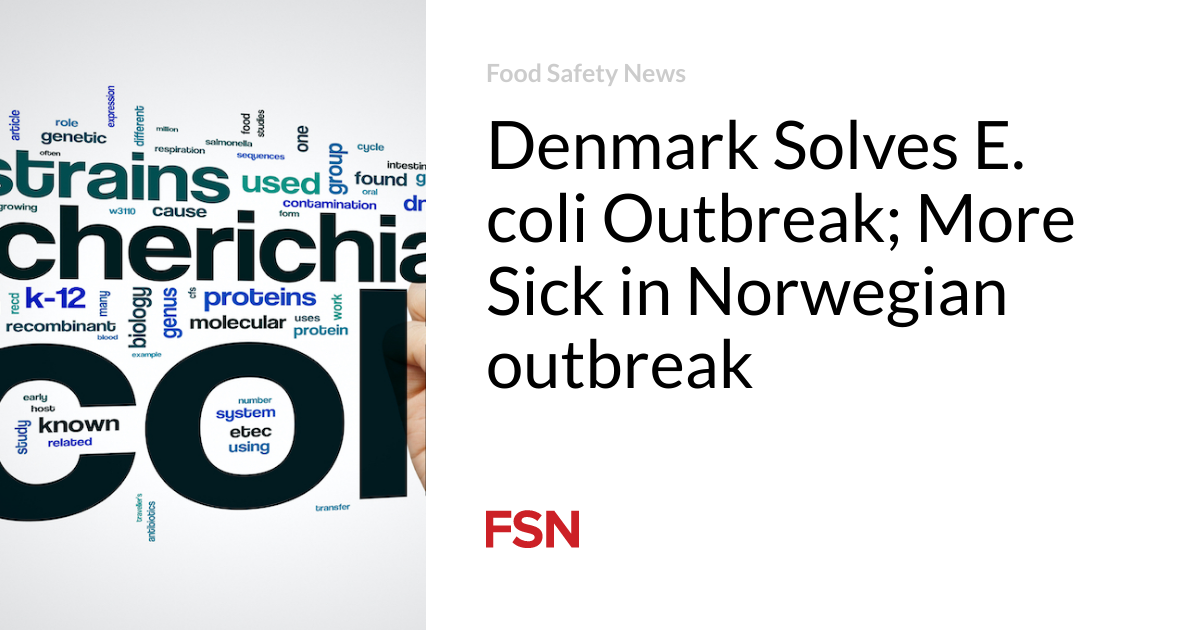Infection
Denmark Solves E. coli Outbreak; More Sick in Norwegian outbreak
Danish officials have solved an E. coli outbreak linked to meat that sickened six people.
Since late March, half a dozen E. coli O157:H7 patients fell sick, and one developed hemolytic uremic syndrome (HUS). HUS is a severe complication associated with E. coli infections that causes kidney failure. The first patient was identified in March, but the other five infections occurred around September.
Five people were hospitalized, but no deaths have been recorded, said the Statens Serum Institut (SSI). The patients were five men and one woman between the ages of 2 and 35.
The SSI, Danish Veterinary and Food Administration (Fødevarestyrelsen), and DTU Food Institute investigated the outbreak that was linked to a type of beef steak, thanks to patient interviews.
Interviews with sick people or their relatives, analysis of purchasing data, tracing of the product, and inspection visits to an unnamed production firm showed the source of infection was probably a batch of hanger steak.
The implicated batch is no longer on the market, and the Danish Veterinary and Food Administration is helping the company take measures to prevent such an incident from happening again.
The outbreak strain was O157:H7 sequence type 11 and was positive for the Shiga toxin (Stx) 2a subtype, which is known to be associated with severe disease and HUS.
In 2022, Denmark had 1,330 cases of E. coli, up from 927 in 2021. This rise is partly due to a change in diagnostic methods and more testing.
Norwegian outbreak
Meanwhile, in Norway, four other cases have been added to a different E. coli outbreak.
The Norwegian Institute of Public Health (FHI) reported that E. coli O26:H11 had been detected in 24 people. It is one of the country’s most severe E. coli outbreaks.
Fifteen of those infected are under the age of 13, and nine children have developed hemolytic uremic syndrome (HUS).
Patients live across the country and became ill from July to October. They range in age from 1 to 55 years old. Fifteen patients live in Trøndelag, and four in Viken.
The outbreak is being investigated by FHI, municipal chief medical officers, the Norwegian Food Safety Authority (Mattilsynet), and the Veterinary Institute.
The outbreak strain has been found in a hamburger, but other minced (ground) meat products where the same raw materials have been used have also been withdrawn.
Nordfjord Kjøtt has issued several recalls of meat products sold at Rema 1000 stores nationwide. Some products have shelf life dates up to June 2024. Others have expired, but officials are concerned people may still have items at home in their freezers.
(To sign up for a free subscription to Food Safety News, click here.)

